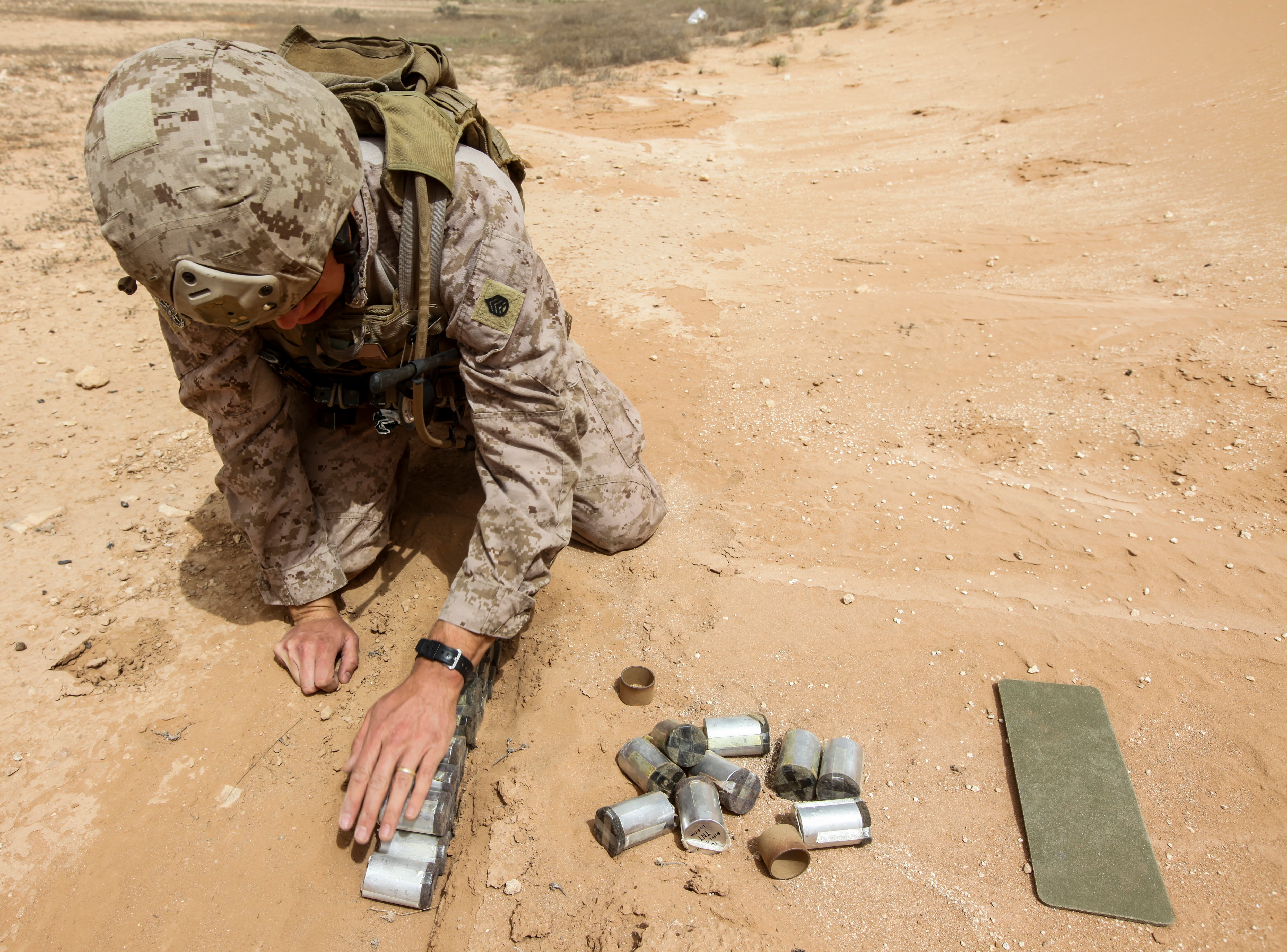Though constrained by the U.S. policy of "no boots on the ground," Marines in Iraq have contributed to the fight against the Islamic State group in ways that go far beyond military advising.
The first Marine advisers to return to Iraq since U.S. troops left the country more than three years ago force in Iraq spent several months not only training thousands of local troops to fight IS militants, but also its inaugural deployment analyzing enemy forensic evidence to better track the terror group and even helping to deliver a few babies — all while training thousands of local Iraqi troops to fight IS slamic State . Meanwhile, other Marines with elements of their unit, operating from other locations in the region, were dropping bombs on IS targets.
Special Purpose Marine Air-Ground Task Force Crisis Response-Central Command was organized and activated at bases across the Middle East last fall. While the 2,300-man unit was designed as a broad response force for the region, elements were immediately deployed to conduct air strikes and military advisory missions in support of a joint fight against IS militants forces in Iraq and Syria. The unit's first rotation, which completed a seven-month deployment in April, contributed to more than 600 enemy casualties through air attacks and advisory efforts, said Col. Jason Bohm, who commanded the unit during the rotation.
During a roundtable interview with reporters at the Pentagon on Monday, Bohm described an advisory mission in which more than 300 Marines with Task Force Al Asad trained anywhere from 35 to 1,000 Iraqi 7th Division troops at a time, imparting skills ranging from basic combat development to counterimprovised explosive device techniques.

A Marine explosive ordinance disposal technician attached to Task Force Al Asad sets charges for a controlled detonation of unexploded ordinance aboard Al Asad Air Base in Iraq in May. Task Force Al Asad is a coalition unit participating in Operation Inherent Resolve's Building Partner Capacity mission, which trains and enables Iraqi security forces in their fight against the Islamic State group.
Photo Credit: Cpl. Cansin Hardyegritag/Marine Corps
They developed instruction programs suited to a newly formed brigade with just eight weeks of military training under their belts, and later did the same for the more experienced Iraqi force responsible for the security of Al Asad Air Base.
And using a forensics lab staffed by a 20-man law enforcement battalion detachment, Marines processed more than 3,000 pieces of evidence from IS fighters, passing along findings to the U.S. intelligence community. The Marines could not collect evidence beyond the confines of the base, but they worked with U.S. special operations forces and Iraqi troops to bring in items left behind after combat engagements with IS fighters.
"That was part of the training we did with our Iraqi friends and partners," Bohm said. " 'When you go out there, bring back IED components, bring back [identification] ID cards, bring back passports' — any documentation, any kind of media, cell phones, laptops, anything they could get their hands on to develop further information about the enemy."
After IS launched an unsuccessful attack on the Al Asad base in February, Marines were able to glean forensic evidence wherever fighters had breached the perimeter of the base as well, Bohm said.
In Baghdad, where a company of SPMAGTF-CR-CC Marines provided added security to the U.S. Embassy, a smaller liaison detachment also worked with a combined joint special operations task force to scout out potential partnership training locations around Iraq to determine their viability.
Despite recent IS victories, including the successful siege of Ramadi this month, Bohm he expressed cautious optimism about the condition of the Iraqi security forces waging ground combat against the militant group.
"They have been in 10 months straight of sustained combat now since Daesh came across the border," Bohm said, using a local dialect nother name for the Islamic State group. "So there's a challenge associated with attempting to train them while they're still actively engaged.
"But their hearts [are] in the right place, their minds are in the right place. They want to seek the assistance of the United States and their coalition partners to get better. I will tell you that they are better after having spent some time with us in training, but it will continue to be a challenge."
Within the confines of Al Asad, Marines found time to provide limited humanitarian assistance in addition to their other duties. During their tenure at the base, it would become home to over 1,000 Iraqi civilians who were made homeless when IS fighters overran their neighborhoods, Bohm said. Using a lightweight water purification system, Marines were able to provide clean drinking water for everyone on the base, including these refugees. And they provided other care as they were able.
"We actually gave birth to three babies while we were there," Bohm said.
A second rotation of the crisis response unitSPMAGTF-CR-CC, led by 7th Marine Regiment, is now in place in the Middle East, spread across six countries including Bahrain, Qatar, Kuwait and Yemen. Bohm said he believed the force was "right-sized" at 2,300 troops for the current mission and said basing agreements would allow the unit to stay spread across the region Middle East in its current layout for at least another year.




